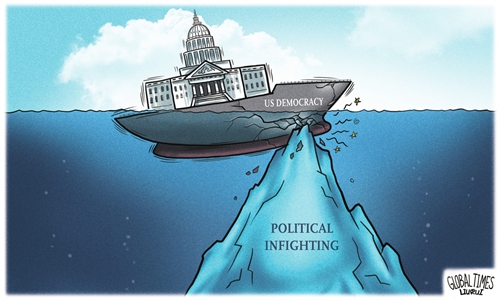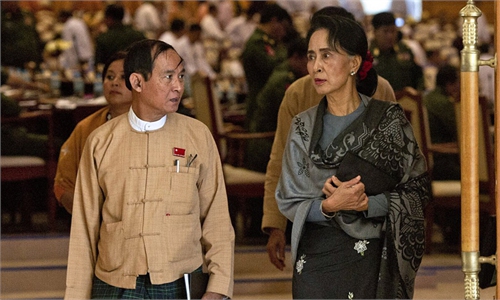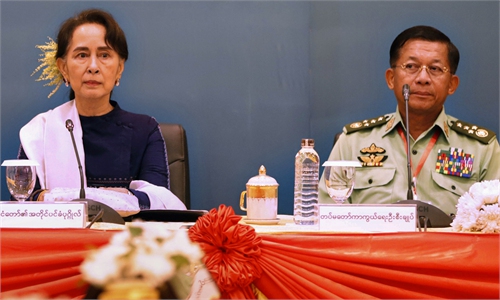US faces challenge of ‘de-Americanization’

Medical workers transport a patient at George Washington University Hospital in Washington D.C., the United States, on April 27, 2020. Photo: Ting Shen/Xinhua
We could have never imagined that the US would evolve into a "socialistic democratic" country like Sweden. But we will soon have to face a US that has a strong socialist democratic tendency.I predicted in an article a few months ago that once the pandemic eases, all the countries will attach more importance to social security. Improving people's livelihood, especially upgrading the medical and healthcare system, will become global trend in quite a long time.
It is especially so in developed countries. Among developed countries, the adjustment and changes in the US deserve the most attention.
The US administration has unveiled a $1.9 trillion coronavirus relief proposal. US Treasury Secretary Janet Yellen said the US could reach full employment next year if Congress passes the bill. Chairman of the Senate Budget Committee, Sen. Bernie Sanders, insisted not to limit the income threshold of getting assistance. Based on this plan, each American whose annual income does not exceed $75,000 could get a $1,400 stimulus check.
Obviously, the passage of this massive relief plan will not only benefit the American public, but also enable the government to play a more important role in ensuring and improving the economy and social security. With more policies to be released soon, the existing medical insurance system is expected to be improved.
I don't think the US will become a welfare country like European countries, or a socialist democratic country, any time soon. But all signs indicate that the US is likely to steer its wheel into this direction.
The pandemic accelerated the US speed of policy adjustment, which is expected to bring structural changes.
As early as November 2015, Sanders delivered a long-planned speech on the topic of democratic socialism at Georgetown University which included these policies. More importantly, his socialist thought gained wider support from the millennials and Generation Z. This is why during the recent US presidential election, many voters characterized US division as the contest between capitalism and socialism.
More than 10 years ago, I suggested the idea of China's de-Americanization in a short article. As a matter of fact, almost all developing countries face the challenges of Americanization as their economy develops.
To put it simply, under the market economy, capitalist forces have had a strong impact on all fronts of society, including the social system and people's values. The developing countries must pay high heed to social equity from the initial stage of economic development. They must establish social security, employment insurance and other-related systems, otherwise sustainable development cannot be achieved.
Now, the US itself is facing the challenge of "de-Americanization."
The COVID-19 pandemic has laid bare the fragility of the US social welfare and health systems. On one hand, there are institutional problems in these systems. On the other, the fragility is also related to the US' negligence to building a fairer secondary distribution system.
However, the US is still a capitalist country. US society values individualism, competition and freedom. In particular, conservative groups that support Republicans firmly oppose any European-style welfare policies, because such policies will directly lead to the formation of a big government. They certainly will fight against such a socialist tendency desperately.
Capitalism has an innate fear of socialism. Capitalist forces will not easily withdraw from the stage of US politics, especially after the outbreak of the epidemic. The Wall Street will become greedier.
It will further accelerate the accumulation of wealth through seeking expansion. The existing US management and distribution systems are insufficient to counterbalance the impact the Wall Street will have on social equity. Therefore, in the future, we will see a more severe battle between two routes.
The author is a senior editor with People's Daily, and currently a senior fellow with the Chongyang Institute for Financial Studies at Renmin University of China. dinggang@globaltimes.com.cn. Follow him on Twitter @dinggangchina




